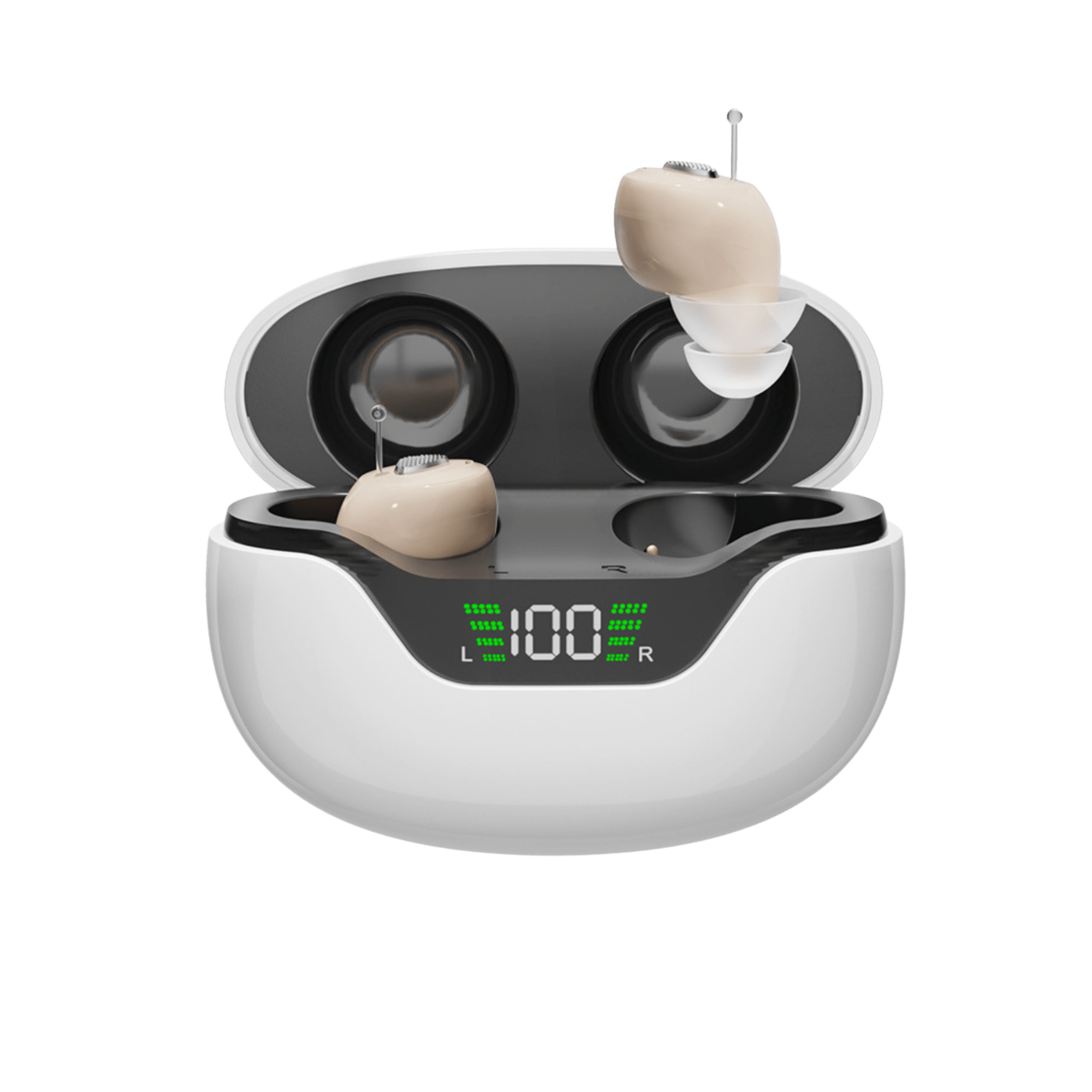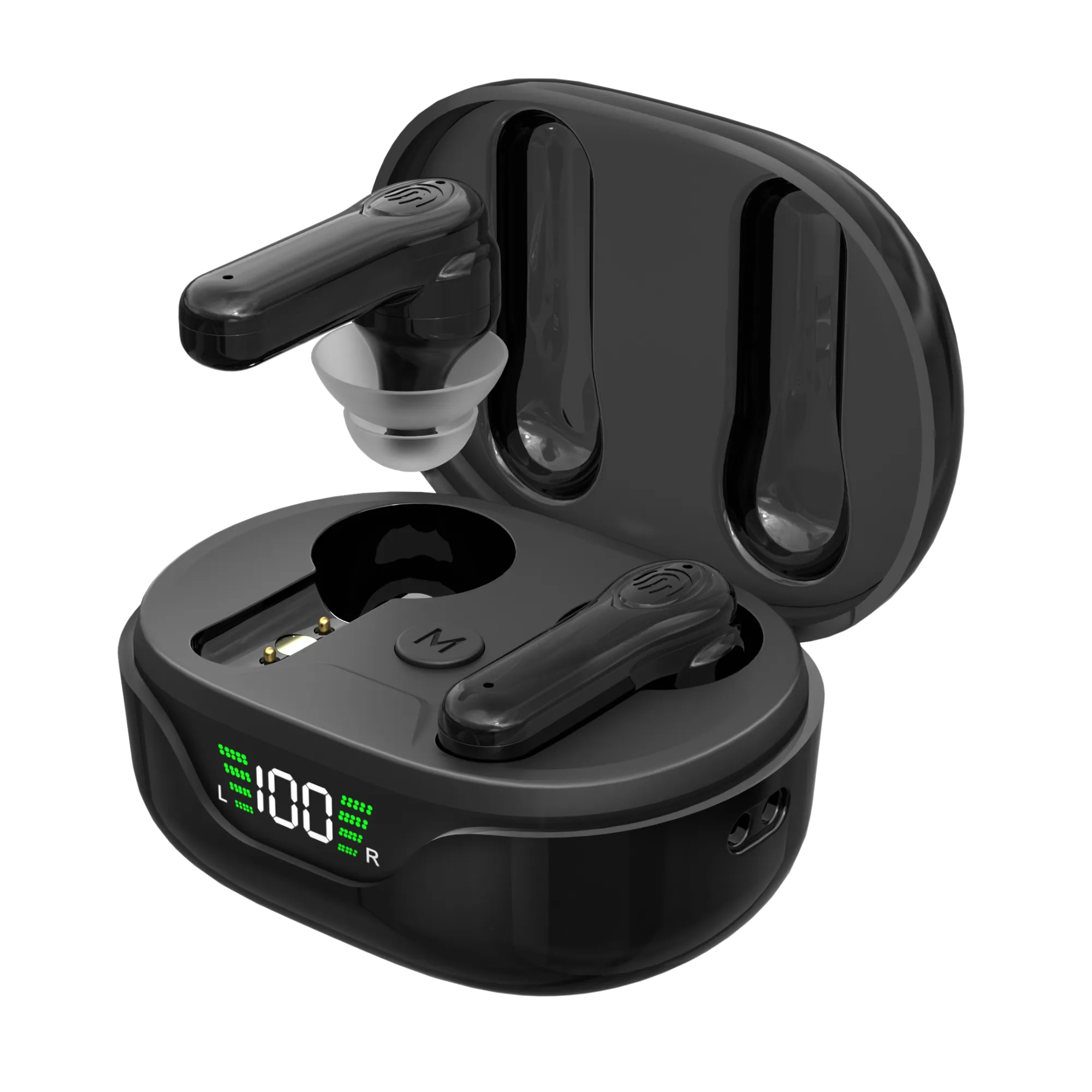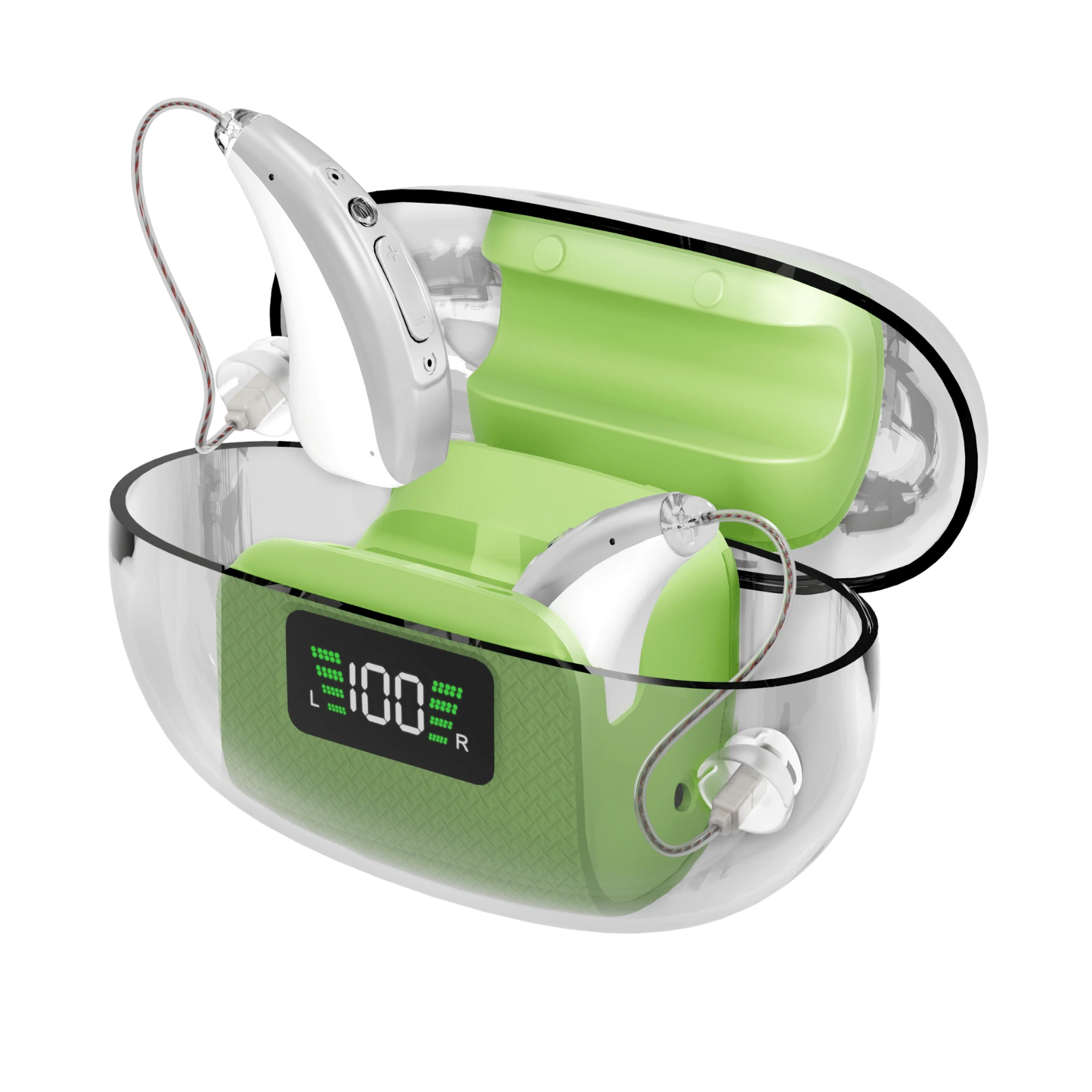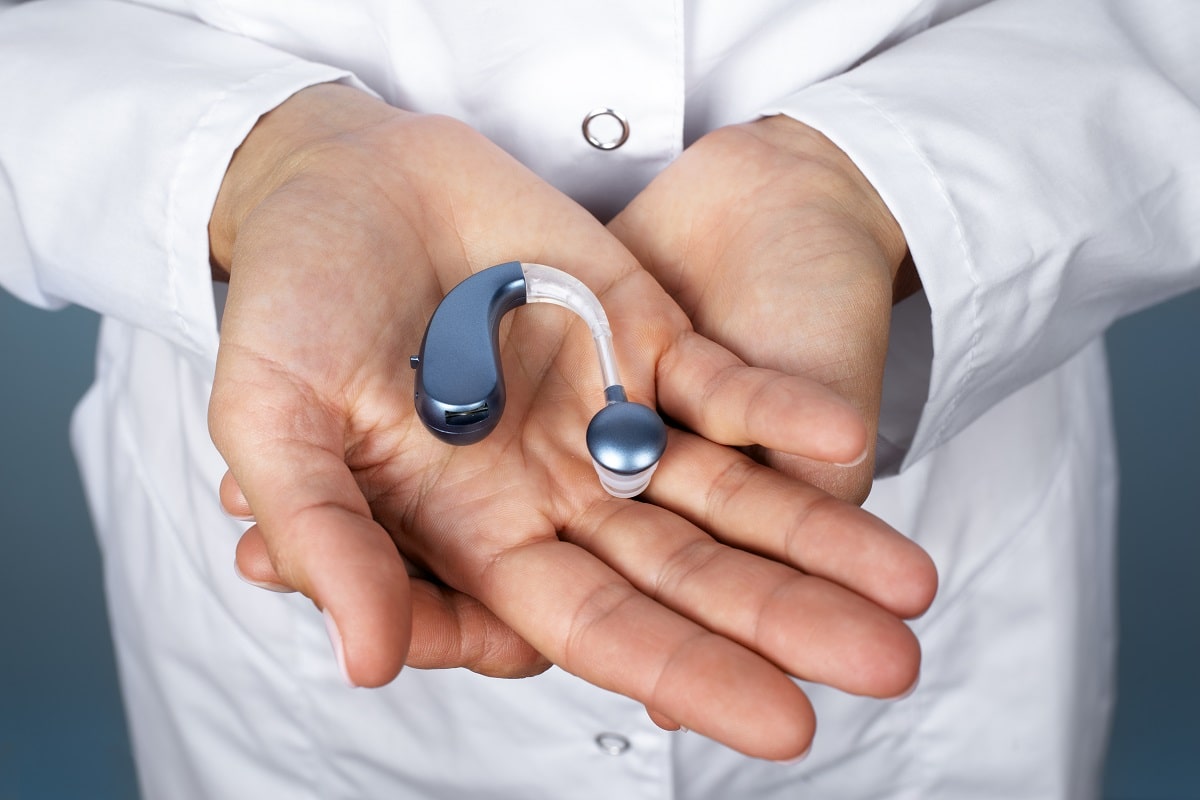Hearing aids have been a great help to those who have been struggling with hearing loss for a very long time. These devices bridge the gap between the world of quiet and the world of sound. On the other hand, the potential advantages they offer and the level of support they offer frequently go well beyond what is comprehended by the majority of people. You could be wondering things like, "Can hearing aids improve cognitive function?" and "What other questions might cross your mind?" Is it possible to use them with hearing loops and other assistive listening devices? Will they improve the quality of my experience when listening to music and participating in other auditory activities? Will they be covered by Medicaid, flexible spending accounts (FSAs), or health savings accounts (HSAs), among other options? The purpose of this article is to investigate the many uses that hearing aids can have, with the goal of answering the questions posed above.
Hearing Aids as well as Cognitive Performance
Hearing loss is more than just an issue of having a diminished ability to hear. It has broader ramifications, and it certainly has the potential to have a significant effect on cognitive performance. This impact is brought on by the pressure that it places on the brain, which must exert more effort in order to correctly comprehend the fragmented sound information that it takes in.
There is mounting evidence that hearing loss, if left untreated, can lead to a deterioration in cognitive function and is connected with an increased risk of illnesses such as dementia. The argument that behind this observation is that the decreased amount of auditory input to the brain, in conjunction with the increased amount of cognitive work needed to comprehend speech, may be factors that contribute to this deterioration.
Hearing aids are a possibility for helping to reduce this risk. Hearing aids, by virtue of their ability to amplify sound, make certain that the brain gets more comprehensive auditory information. This, in turn, lightens the strain on the brain and frees up resources that may be put to use in other areas. In addition, the use of these gadgets can assist persons in remaining socially engaged, which is another crucial component in preserving cognitive health.
Accessibility for those who use hearing aids and other assistive listening devices
Hearing aids are more than simply personal gadgets; rather, they are a component of a larger ecosystem of assistive technology that is meant to help people who have hearing loss. Hearing loops and assistive listening systems are two methods that can improve the audibility of sounds in a variety of settings. Many modern hearing aids are compatible with both methods.
Hearing loops are a type of assistive listening device that may be found in a variety of public places, including auditoriums, churches, and conference rooms, among others. They eliminate distracting background noise and make it easier to understand what is being said by delivering sound directly to the hearing aids, which is how they operate. The telecoil, often known as a T-coil, is a component that is standard on many modern hearing aids. This component is essential for establishing a connection to a hearing loop.
On the other hand, assistive listening systems comprise a broad variety of hearing aids, including FM, infrared, and Bluetooth systems, all of which are meant to improve one's ability to hear in a variety of environments. They may be useful in places where hearing loops are not installed, as well as in more private situations, such as when one is watching television in their own house.
To summarize, if you find yourself in listening conditions that are difficult on a regular basis or if you want to get the most out of your time spent watching television, going to the theater, or attending music events, investing in a hearing aid that is compatible with these systems can be of great assistance to you.
Participating in Aural Pleasures Like Listening to Music and Other Activities
Our lives are made richer on a variety of levels—emotional, artistic, and cultural—by the experiences that we have with music and other forms of aural stimulation. It can be upsetting for those with hearing loss since they are unable to completely enjoy the events they are missing out on.
Hearing aids of today are, thankfully, more suited than they have ever been to improve the user's ability to appreciate music and other complex sounds. The majority of today's electronic gadgets are equipped with a variety of capabilities, such as broad dynamic range compression and powerful noise reduction algorithms, that are designed to assist create a sound experience that is more realistic and enhanced.
In addition, the majority of hearing aids are equipped with specialized music-listening programs. These applications often permit more sound to flow in without processing it, which results in a listening experience that is more comprehensive and textured. It is usually beneficial to have a conversation with your audiologist about the precise listening needs you have as well as the activities you like doing so that your hearing aids may be customized to fit your lifestyle.
Hearing aids are eligible for coverage under FSAs, HSAs, and Medicaid.
When it comes to purchasing hearing aids, one of the most important factors to make is financial preparation. The good news is that there are a few different options available, including as flexible spending accounts (FSAs), health savings accounts (HSAs), and Medicaid, that might give some help.
Both health savings accounts (HSAs) and flexible spending accounts (FSAs) allow you to put money away before taxes to pay for qualified medical costs. Hearing aids, along with the batteries that go with them, are often counted among the qualified costs for health savings accounts as well as flexible spending accounts (FSAs). This indicates that you are able to utilize the money in these accounts to buy hearing aids and the accessories that go along with them, which effectively enables you to save money on the cost because you are utilizing pre-tax monies.
It is possible for Medicaid coverage, which is a public health insurance program for people and families with low incomes, to be more complicated. The degree to which certain states fund the cost of hearing aids under Medicaid is quite variable. A few of states give full coverage for hearing aids, while others provide just partial coverage, and yet others provide no coverage at all. It is essential to check with the Medicaid office in your state to have a thorough understanding of the particulars of coverage in your area.
Hearing aids, in conclusion, have the ability to boost cognitive performance, operate in conjunction with other assistive technology, increase one's pleasure of music and other auditory experiences, and may be supported by flexible spending accounts (FSAs), health savings accounts (HSAs), and Medicaid. These gadgets have a huge amount of untapped potential and might help improve the lives of people who are hard of hearing in a variety of different ways. It is important to contact with your audiologist or hearing expert before purchasing a hearing aid, whether it is your first time using one or you are wanting to upgrade. This will ensure that the device you choose is suitable for your individual requirements as well as the way you live your life. After all, having perfect hearing health is an essential component of one's overall happiness and sense of fulfillment in life.
Hearing Aids as well as Cognitive Performance
Hearing loss is more than just an issue of having a diminished ability to hear. It has broader ramifications, and it certainly has the potential to have a significant effect on cognitive performance. This impact is brought on by the pressure that it places on the brain, which must exert more effort in order to correctly comprehend the fragmented sound information that it takes in.
There is mounting evidence that hearing loss, if left untreated, can lead to a deterioration in cognitive function and is connected with an increased risk of illnesses such as dementia. The argument that behind this observation is that the decreased amount of auditory input to the brain, in conjunction with the increased amount of cognitive work needed to comprehend speech, may be factors that contribute to this deterioration.
Hearing aids are a possibility for helping to reduce this risk. Hearing aids, by virtue of their ability to amplify sound, make certain that the brain gets more comprehensive auditory information. This, in turn, lightens the strain on the brain and frees up resources that may be put to use in other areas. In addition, the use of these gadgets can assist persons in remaining socially engaged, which is another crucial component in preserving cognitive health.
Accessibility for those who use hearing aids and other assistive listening devices
Hearing aids are more than simply personal gadgets; rather, they are a component of a larger ecosystem of assistive technology that is meant to help people who have hearing loss. Hearing loops and assistive listening systems are two methods that can improve the audibility of sounds in a variety of settings. Many modern hearing aids are compatible with both methods.
Hearing loops are a type of assistive listening device that may be found in a variety of public places, including auditoriums, churches, and conference rooms, among others. They eliminate distracting background noise and make it easier to understand what is being said by delivering sound directly to the hearing aids, which is how they operate. The telecoil, often known as a T-coil, is a component that is standard on many modern hearing aids. This component is essential for establishing a connection to a hearing loop.
On the other hand, assistive listening systems comprise a broad variety of hearing aids, including FM, infrared, and Bluetooth systems, all of which are meant to improve one's ability to hear in a variety of environments. They may be useful in places where hearing loops are not installed, as well as in more private situations, such as when one is watching television in their own house.
To summarize, if you find yourself in listening conditions that are difficult on a regular basis or if you want to get the most out of your time spent watching television, going to the theater, or attending music events, investing in a hearing aid that is compatible with these systems can be of great assistance to you.
Participating in Aural Pleasures Like Listening to Music and Other Activities
Our lives are made richer on a variety of levels—emotional, artistic, and cultural—by the experiences that we have with music and other forms of aural stimulation. It can be upsetting for those with hearing loss since they are unable to completely enjoy the events they are missing out on.
Hearing aids of today are, thankfully, more suited than they have ever been to improve the user's ability to appreciate music and other complex sounds. The majority of today's electronic gadgets are equipped with a variety of capabilities, such as broad dynamic range compression and powerful noise reduction algorithms, that are designed to assist create a sound experience that is more realistic and enhanced.
In addition, the majority of hearing aids are equipped with specialized music-listening programs. These applications often permit more sound to flow in without processing it, which results in a listening experience that is more comprehensive and textured. It is usually beneficial to have a conversation with your audiologist about the precise listening needs you have as well as the activities you like doing so that your hearing aids may be customized to fit your lifestyle.
Hearing aids are eligible for coverage under FSAs, HSAs, and Medicaid.
When it comes to purchasing hearing aids, one of the most important factors to make is financial preparation. The good news is that there are a few different options available, including as flexible spending accounts (FSAs), health savings accounts (HSAs), and Medicaid, that might give some help.
Both health savings accounts (HSAs) and flexible spending accounts (FSAs) allow you to put money away before taxes to pay for qualified medical costs. Hearing aids, along with the batteries that go with them, are often counted among the qualified costs for health savings accounts as well as flexible spending accounts (FSAs). This indicates that you are able to utilize the money in these accounts to buy hearing aids and the accessories that go along with them, which effectively enables you to save money on the cost because you are utilizing pre-tax monies.
It is possible for Medicaid coverage, which is a public health insurance program for people and families with low incomes, to be more complicated. The degree to which certain states fund the cost of hearing aids under Medicaid is quite variable. A few of states give full coverage for hearing aids, while others provide just partial coverage, and yet others provide no coverage at all. It is essential to check with the Medicaid office in your state to have a thorough understanding of the particulars of coverage in your area.
Hearing aids, in conclusion, have the ability to boost cognitive performance, operate in conjunction with other assistive technology, increase one's pleasure of music and other auditory experiences, and may be supported by flexible spending accounts (FSAs), health savings accounts (HSAs), and Medicaid. These gadgets have a huge amount of untapped potential and might help improve the lives of people who are hard of hearing in a variety of different ways. It is important to contact with your audiologist or hearing expert before purchasing a hearing aid, whether it is your first time using one or you are wanting to upgrade. This will ensure that the device you choose is suitable for your individual requirements as well as the way you live your life. After all, having perfect hearing health is an essential component of one's overall happiness and sense of fulfillment in life.





